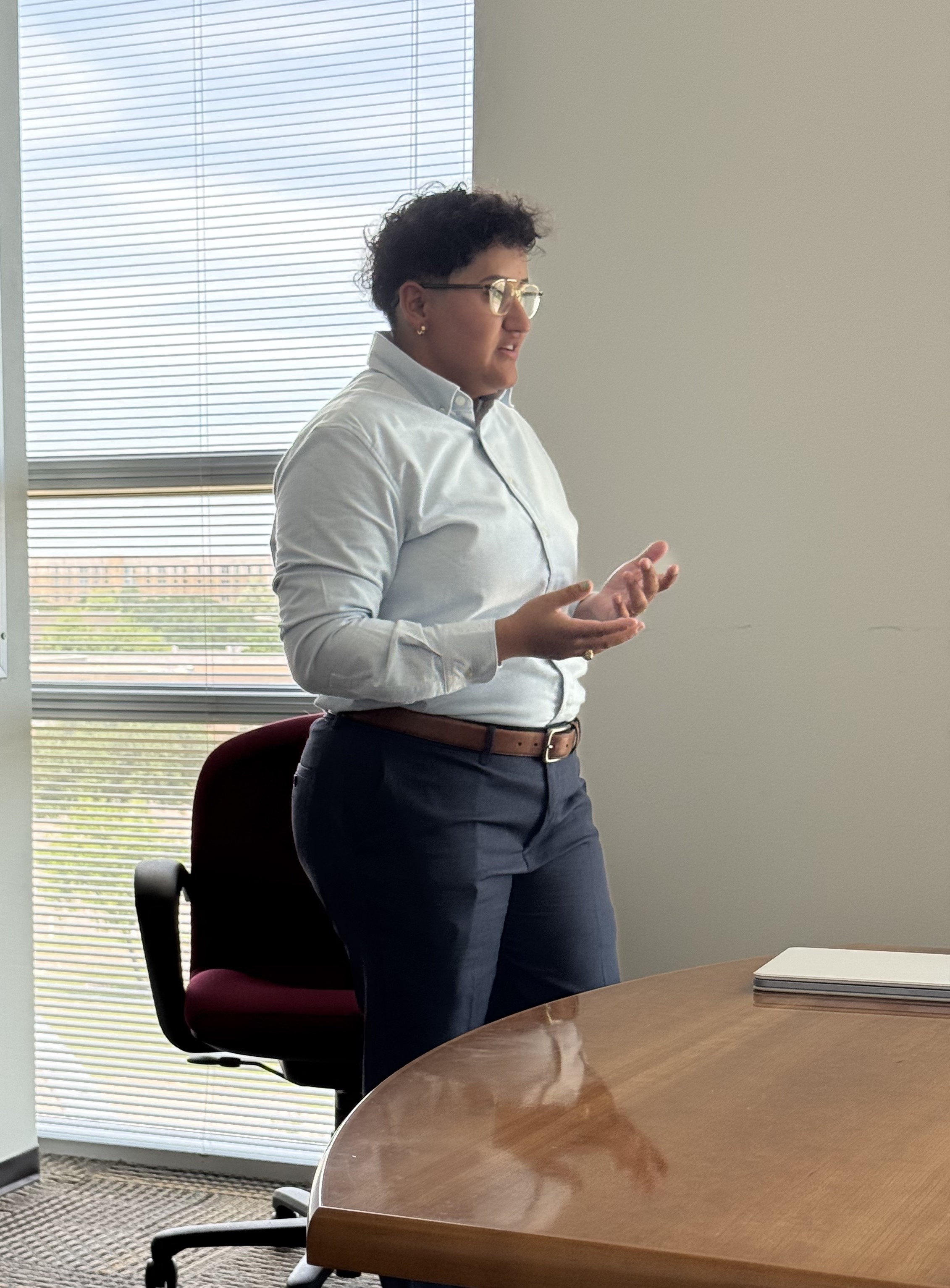
We have a new doctor in the house: Congratulations to Dr. Cindy Barahona. Dr. Barahona successfully defended her dissertation titled "Delayed Transitions: Navigating Legal Violence and Illegality among Undocumented College Graduates." Dr. Barahona's word was guided by Dr. Nancy Plankey-Videla and a committee consisting of Dr. Mary Campbell, Dr. Pat Goldsmith, and Dr. Cintya Salazar (Educational Administration and Human Resource Development).
Undocumented students in the United States face multifaceted challenges in higher education, but little research has been done examining their transition out of college. Dr. Barahona's research examines how undocumented college graduates, with and without DACA, experience structural and symbolic violence in their transition out of college.
Using a Participatory Action Research (PAR) approach and Narrative Inquiry methodology, longitudinal data were collected through three waves of interviews from 2021 to 2023. Findings reveal that participants’ transition out of college is shaped by ongoing forms of structural and symbolic violence that complicate their college and post-graduation experiences. In this process, they strategically adjusted their professional plans along four main fluid career paths.
First, they experience derailment and then take one of three paths, detour, delay, or new career development. Findings also show that support networks influence their career pathways. However, interviewees intentionally diminished communication with them postgraduation, pushing graduates to rely on family for emotional and motivational support. Despite the legal precarity, participants actively resisted the internalization of their “illegality.” Through advocacy, resistance, and coping mechanisms, they delayed a transition to illegality, which helped them negotiate a non-normative entry into adulthood. This research thus posits that undocumented youth’s transition to adulthood is not marked by an immediate transition to illegality, thus complicating and expanding on previous scholarship on this topic. By centering the voices and experiences of undocumented students, this study aims to inform policies and practices that better support their pathways beyond higher education, ultimately advocating for a more inclusive environment for all.
Congratulations, Dr. Barahona!
